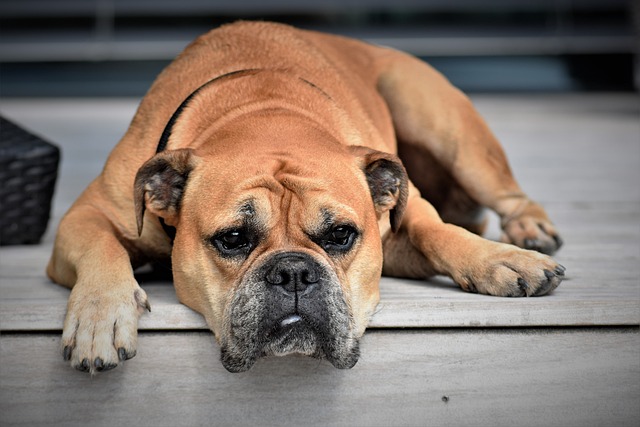Spis Treści
What Makes a Horse Lazy?
When it comes to horses, their behavior and temperament can vary greatly. Some horses are energetic and always ready to go, while others may seem lazy and lack motivation. If you’ve ever wondered what makes a horse lazy, you’ve come to the right place. In this article, we will explore the various factors that can contribute to a horse’s laziness and provide insights into how to address this issue.
Understanding Horse Behavior
Before delving into the reasons behind a horse’s laziness, it’s important to have a basic understanding of horse behavior. Horses are prey animals, and their instincts drive them to conserve energy whenever possible. In the wild, horses would graze for hours, conserving energy for times when they need to flee from predators.
However, domesticated horses have different lifestyles and may not have the same need to conserve energy. Some horses may naturally have a more laid-back temperament, while others may become lazy due to various factors. Let’s explore some of these factors in more detail.
Lack of Exercise
One of the most common reasons for a horse to appear lazy is a lack of exercise. Horses are naturally active animals and need regular physical activity to stay healthy and mentally stimulated. If a horse is not getting enough exercise, they may become bored and unmotivated.
Regular exercise not only helps maintain a horse’s physical fitness but also stimulates their mind. It provides an outlet for their natural energy and can help prevent behavioral issues such as laziness. If a horse is not receiving enough exercise, it’s essential to increase their activity level gradually.
How to Increase Exercise:
- Implement a consistent exercise routine: Set aside specific times each day for exercise, whether it’s riding, lunging, or turnout in a pasture.
- Vary the type of exercise: Engage the horse in different activities such as trail riding, jumping, or dressage to keep them mentally stimulated.
- Consider professional training: If you’re unable to provide sufficient exercise, consider enlisting the help of a professional trainer who can work with your horse regularly.
Diet and Nutrition
A horse’s diet plays a crucial role in their overall health and energy levels. If a horse is not receiving proper nutrition, it can lead to lethargy and laziness. It’s important to ensure that your horse’s diet meets their specific nutritional needs.
Here are some factors to consider regarding diet and nutrition:
Quality Forage:
Forage, such as hay or pasture, should make up the majority of a horse’s diet. Ensure that the forage is of good quality and free from mold or dust, as poor-quality forage can affect a horse’s energy levels.
Balanced Diet:
In addition to forage, horses require a balanced diet that includes grains, vitamins, and minerals. Consult with a veterinarian or equine nutritionist to determine the appropriate feed for your horse based on their age, weight, and activity level.
Feeding Schedule:
Establish a consistent feeding schedule to provide your horse with regular meals. Horses thrive on routine, and a predictable feeding schedule can help maintain their energy levels.
Health Issues
Another factor that can contribute to a horse’s laziness is underlying health issues. If a horse is experiencing pain or discomfort, they may appear lazy or unwilling to work. It’s crucial to rule out any potential health problems before assuming a horse is lazy.
Here are some common health issues that can affect a horse’s energy levels:
Dental Problems:
Issues with a horse’s teeth can make it difficult for them to chew and digest food properly. This can lead to weight loss, poor nutrition, and a lack of energy. Regular dental check-ups and floating (smoothing) of teeth can help prevent dental problems.
Lameness or Joint Pain:
Horses with lameness or joint pain may exhibit laziness as a result of discomfort. Conditions such as arthritis or hoof problems can significantly impact a horse’s willingness to move and work. Consult with a veterinarian or equine specialist to diagnose and treat any lameness issues.
Internal Health Problems:
Internal health issues, such as hormonal imbalances or digestive disorders, can also affect a horse’s energy levels. If you suspect your horse may have an underlying health problem, consult with a veterinarian for a thorough examination and appropriate treatment.
Mental Stimulation
Horses are intelligent animals that require mental stimulation to thrive. A lack of mental stimulation can lead to boredom and laziness. Providing your horse with opportunities for mental engagement can help combat laziness and keep them motivated.
Here are some ways to provide mental stimulation for your horse:
Training and Learning:
Engage your horse in regular training sessions to keep their mind active. Teach them new skills, work on groundwork exercises, or introduce them to different obstacles. This not only provides mental stimulation but also strengthens the bond between you and your horse.
Enrichment Activities:
Introduce toys or treat-dispensing devices in your horse’s environment to encourage play and exploration. Hanging a ball or providing puzzle feeders can keep them entertained and mentally engaged.
Turnout and Social Interaction:
Horses are social animals and thrive on interaction with other horses. Providing ample turnout time in a herd environment allows horses to engage in natural behaviors and socialize, which can prevent boredom and laziness.
Environmental Factors
The environment in which a horse lives and works can also impact their energy levels. Factors such as stable conditions, weather, and social dynamics can all contribute to a horse’s behavior and potential laziness.
Stable Conditions:
A clean, well-ventilated, and comfortable stable environment is essential for a horse’s overall well-being. If a horse is kept in a poorly maintained or overcrowded stable, it can lead to stress and decreased energy levels.
Weather Conditions:
Extreme weather conditions, such as excessive heat or cold, can affect a horse’s energy levels. Ensure that your horse has access to shelter and appropriate protection from the elements.
Social Dynamics:
Horses are herd animals and thrive on social interaction. If a horse is isolated or lacks companionship, it can lead to boredom and laziness. Whenever possible, provide your horse with the opportunity to interact with other horses.
Conclusion
Understanding what makes a horse lazy requires considering various factors that can contribute to their behavior. Lack of exercise, poor diet, health issues,


















